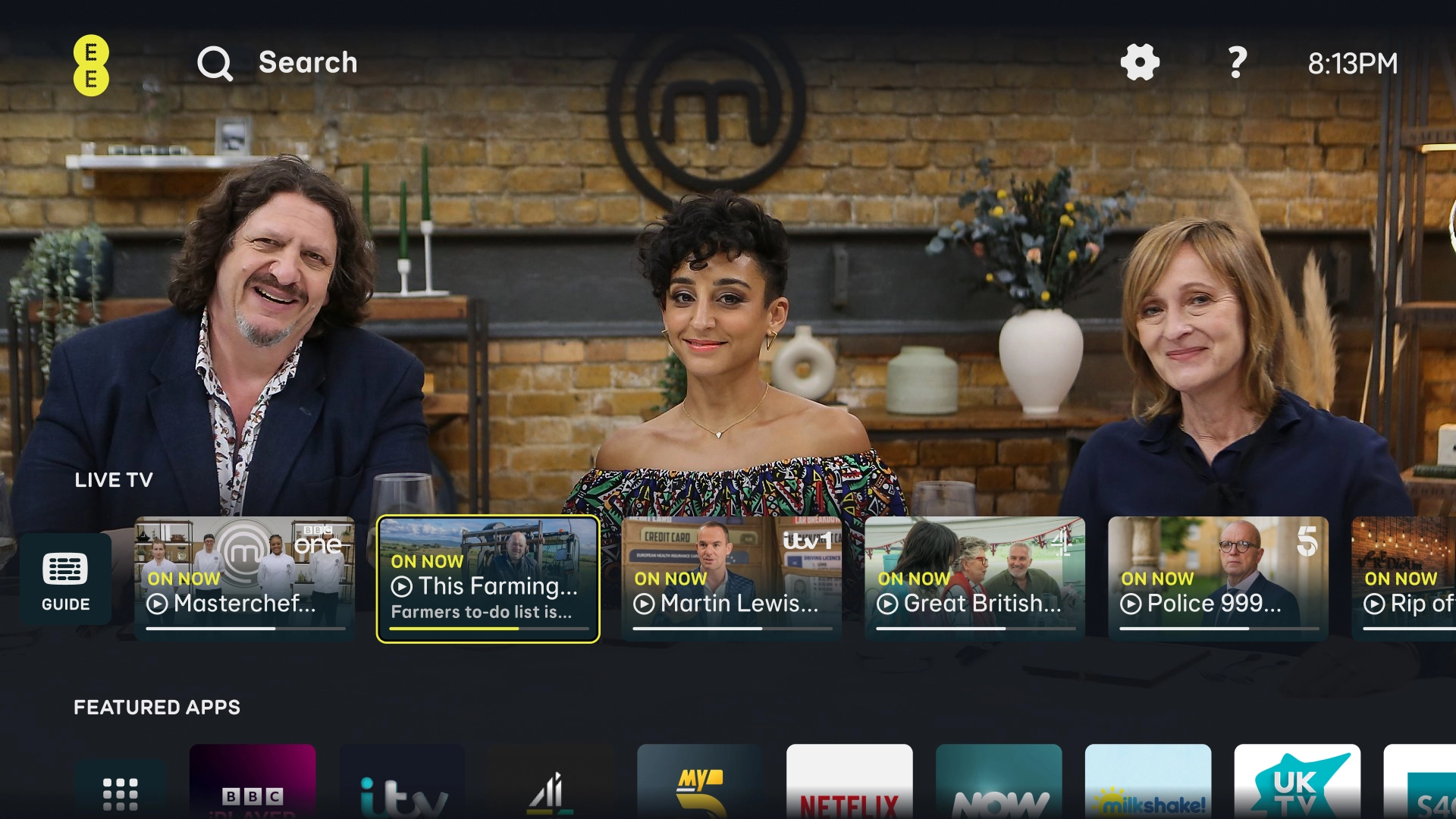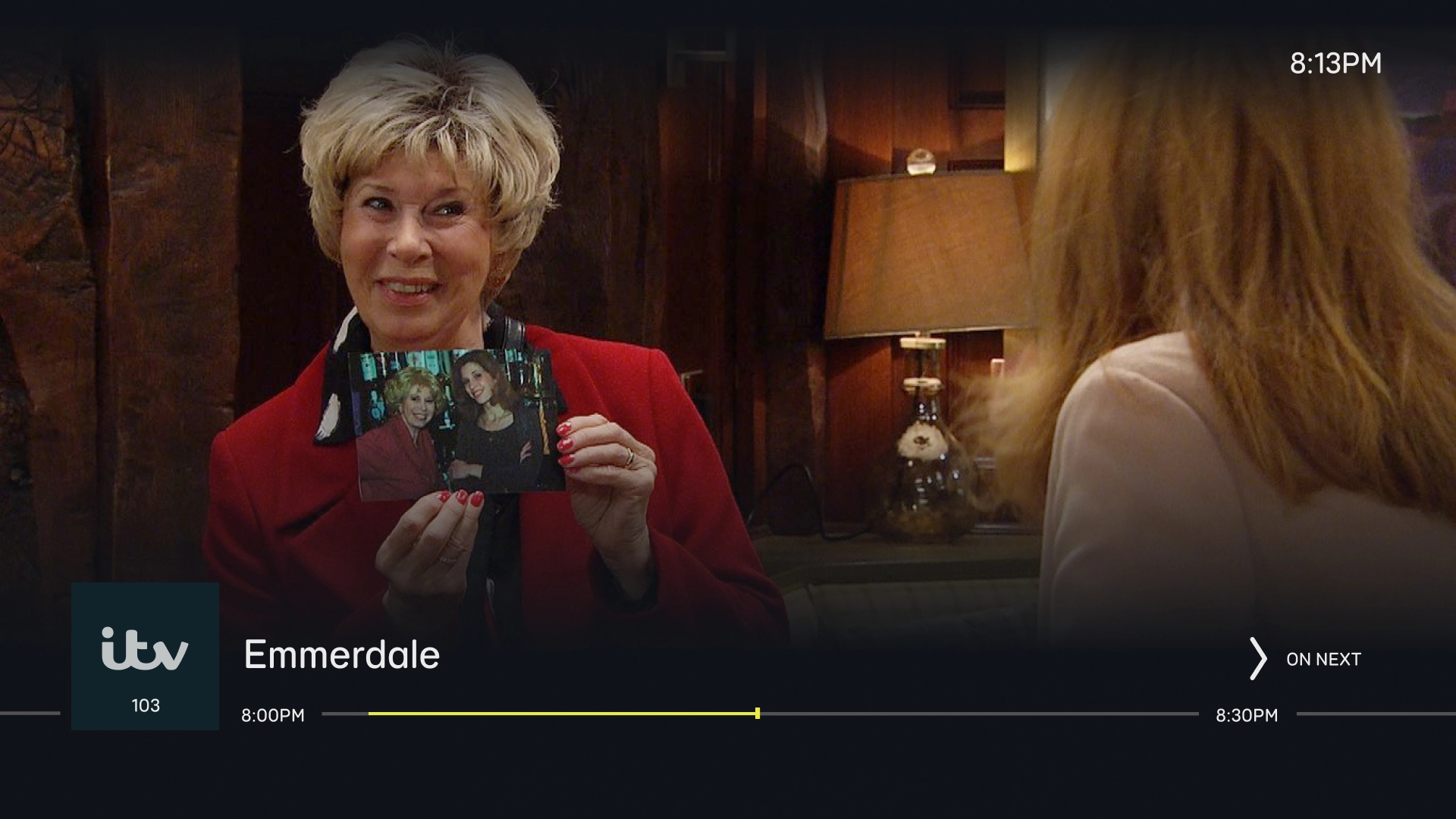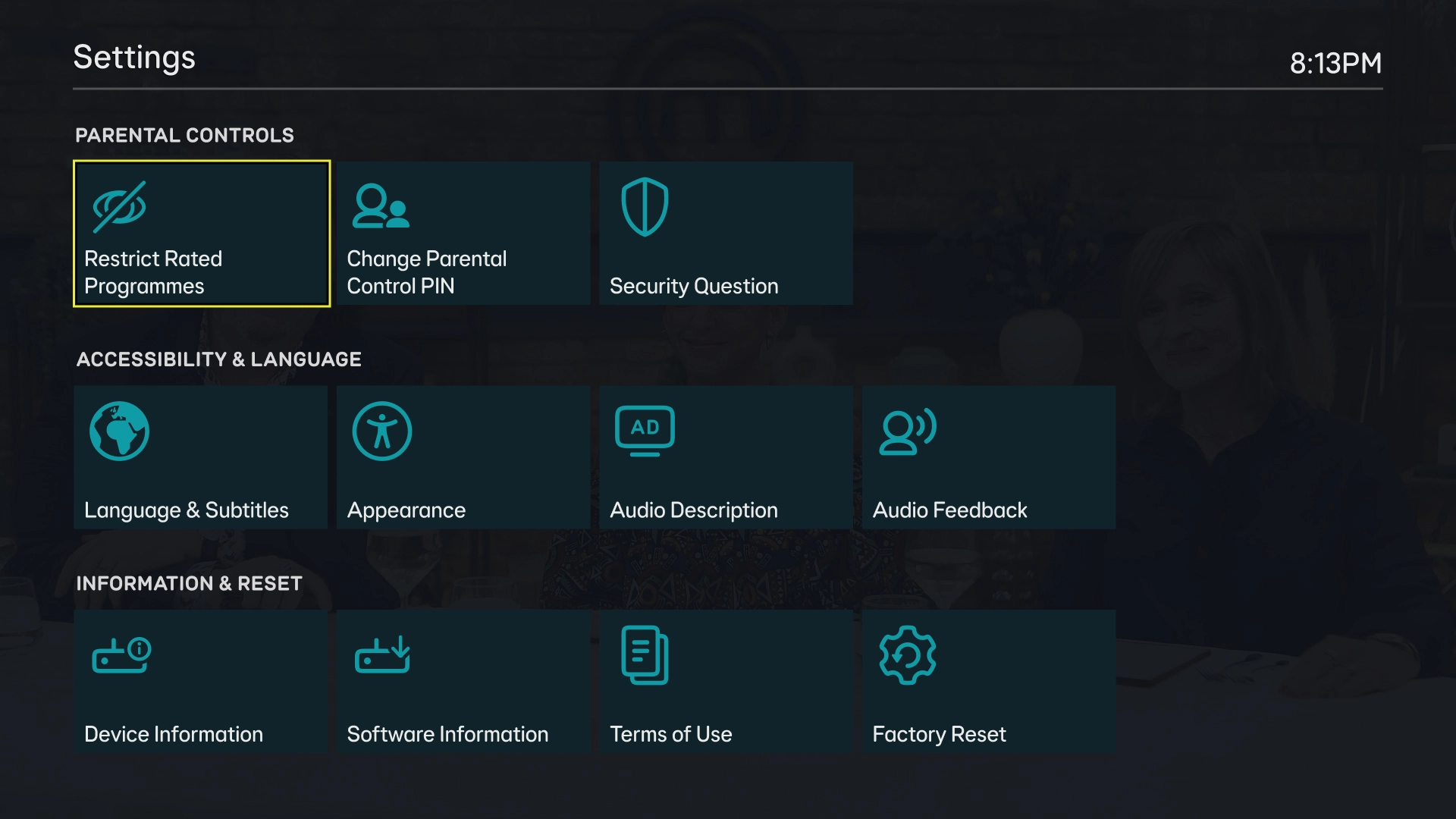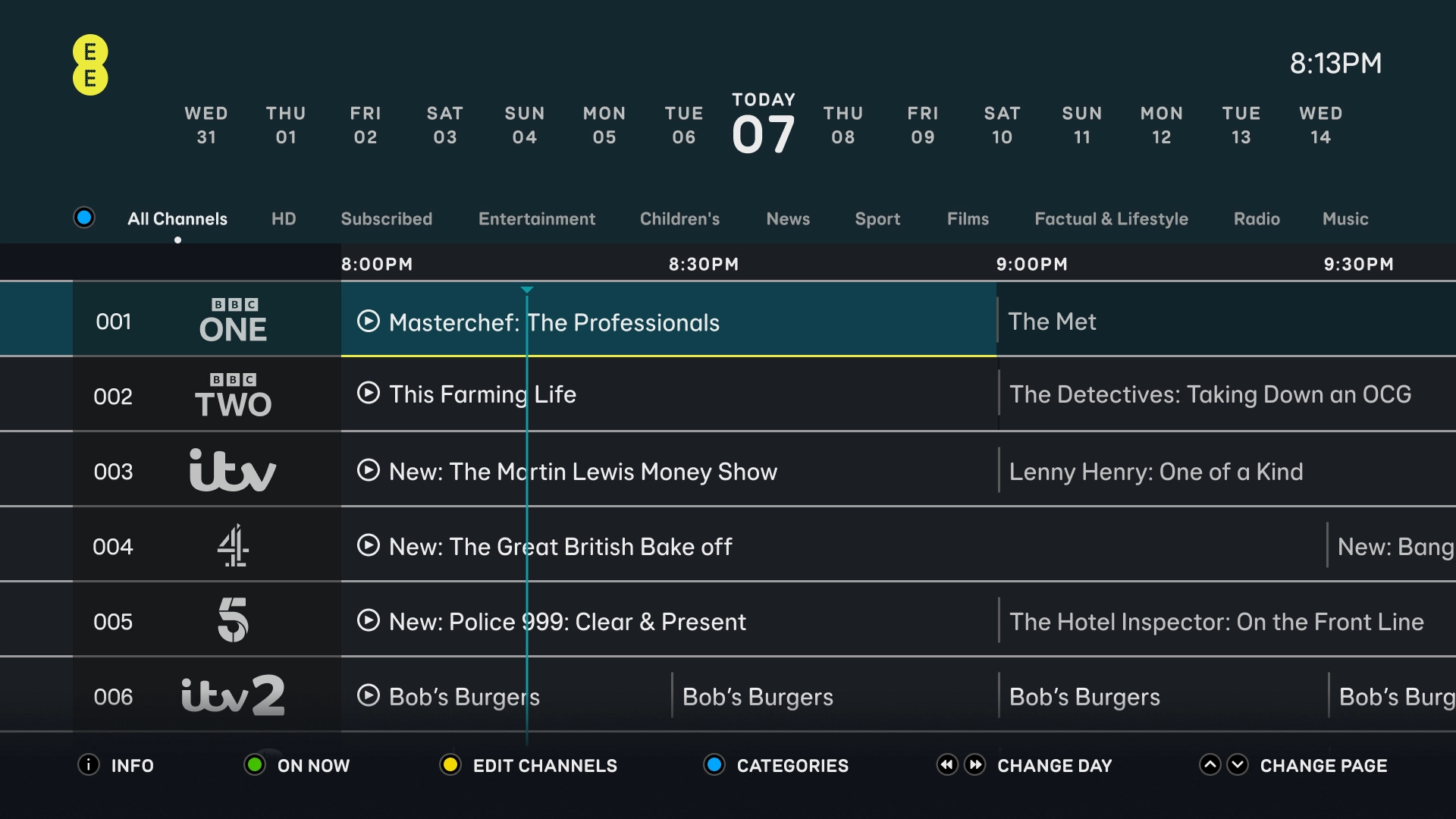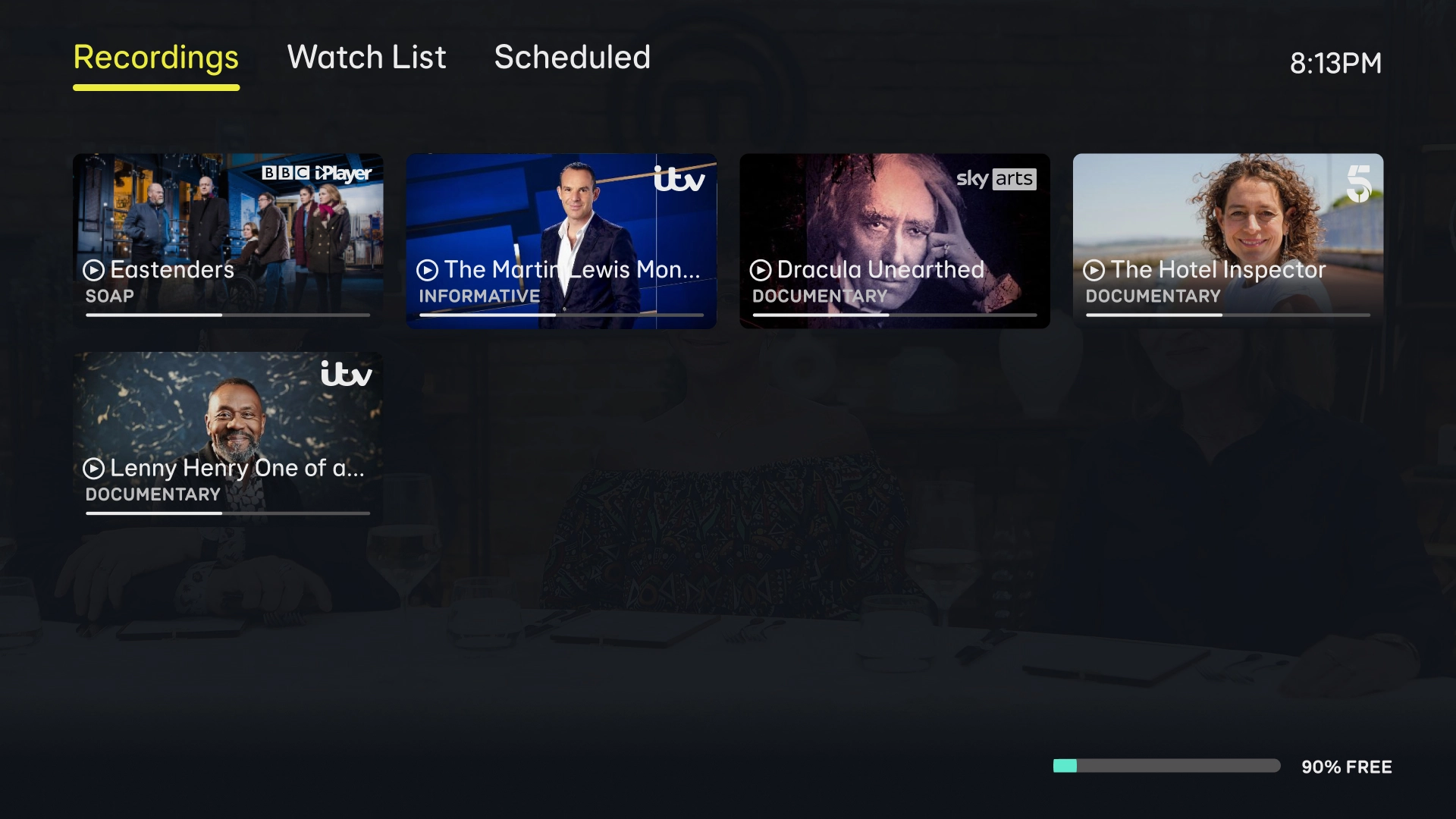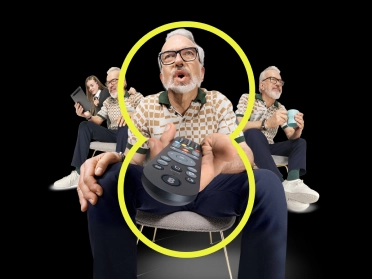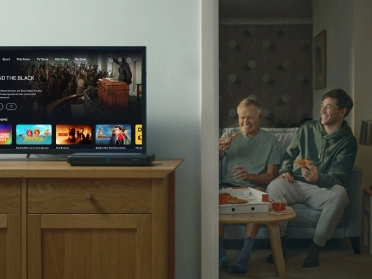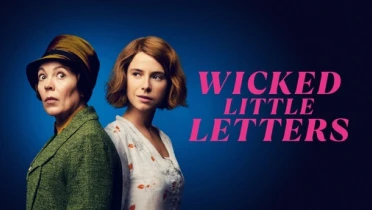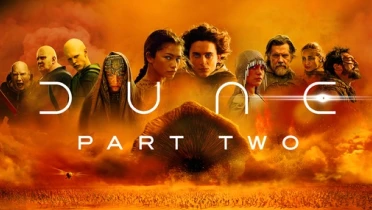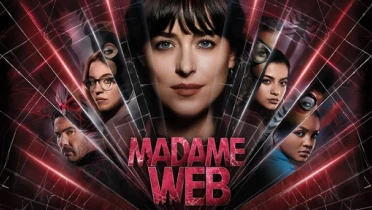OUR PARTNERS PROVIDE. WE DELIVER.
Dive into a world of unparalleled entertainment with our incredible packages, seamlessly blending the finest in entertainment and sports, across numerous channels and streaming services for a truly immersive television experience.
We've added Apple TV+ to our line-up, boosting your package even more as one of the many available extras.
Apple TV+ brings you award-winning Apple Original series and films, from hit dramas to star-studded comedies, groundbreaking documentaries to kids’ favourites. There are new premieres added every month.
GOT YOUR ATTENTION?
JOIN NOW AND GET 3 MONTHS APPLE TV+ ON US
Key features of the EE TV Box Pro
All the apps
Explore a world of entertainment with access to popular apps like BBC iPlayer, NOW, discovery+, and Netflix.
Stay connected
Connect your BT broadband hub via wi-fi, or use the provided 1.5m ethernet cable.
Never miss a second
Pause and rewind live shows on our most advanced personal video recorder yet.
Free-to-air
Watch over 70 free-to-air channels as well as the channels in your package.
Record
Record up to 600 hours of TV across up to four channels at the same time.
Sound
Comes with Dolby Atmos and future-ready 4K HDR (perfect for TNT Sports Ultimate).
Still have a BT TV Box Pro?
No need to stress - You'll also continue to enjoy everything you love about the features mentioned above.
The only noticeable changes are the BT purple light on your TV Box making way for the vibrant EE aqua-coloured light and the introduction of our awesome new interface shown below.
Unsure which TV box you have? View our TV box help article here.
Introducing the all-new EE TV interface
You’ll be able to choose what you’d like to watch including live TV and access to apps such as BBC iPlayer, Netflix, Prime Video, discovery+ and many more - all conveniently available from your EE TV home screen.
Maximise your entertainment experience
EE TV STORE
Grab the latest and greatest movies for the whole family, available for purchase or rent.
READY TO START WATCHING?
TV - Frequently asked questions
Important information
The legal stuff
ΔOn 31 March each year the monthly price shown for broadband plans will increase by £3 and for TV plans by £2 (if you take Broadband and TV that’s £5 in total). Out of bundle charges will increase by 5%. All prices shown are in contract prices. Please note the cost of other services you take from us may increase or decrease while you are a BT customer. See bt.com/prices-explained for details.
Copyrights:
Formula 1®, F1®
© 2024 Warner Bros. Discovery. All rights reserved.
The Regime ©2024 Home Box Office, Inc. All Rights Reserved.
Oppenheimer © 2023 Universal Studios. All Rights Reserved.
Madame Web © 2024 Columbia Pictures Industries, Inc. and TSG Entertainment II LLC. All Rights Reserved. MARVEL and all related character names: © & TM 2024 MARVEL.
The Iron Claw © 2023 House Claw Rights LLC; Claw Film LLC; British Broadcasting Corporation. All Rights Reserved.
Wicked Little Letters © 2023 /STUDIOCANAL SAS - CHANNEL FOUR TELEVISION CORPORATION.
Argylle © 2024 Universal Studios. All Rights Reserved.
Dune: Part Two © 2024 Warner Bros. Entertainment Inc. and Legendary. All Rights Reserved.
The Good Doctor © 2024 Sony Pictures Entertainment. All Rights Reserved.



